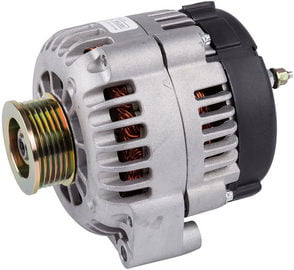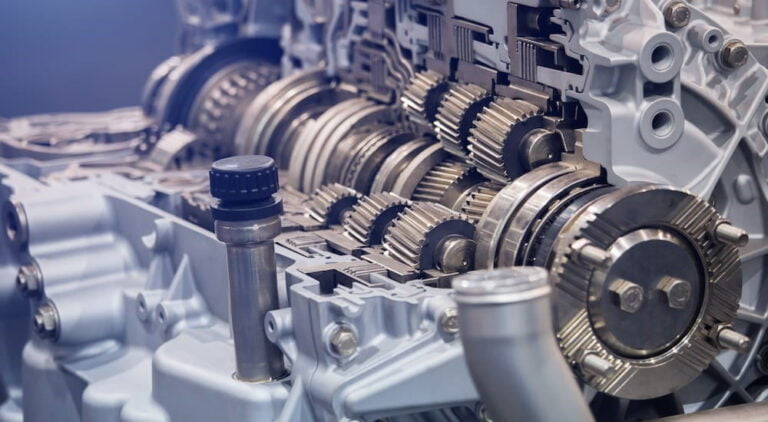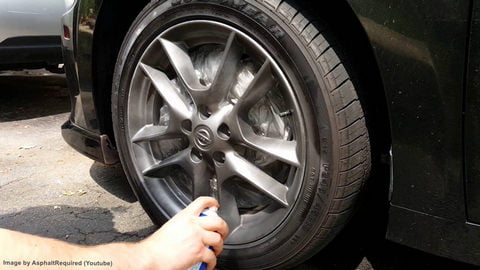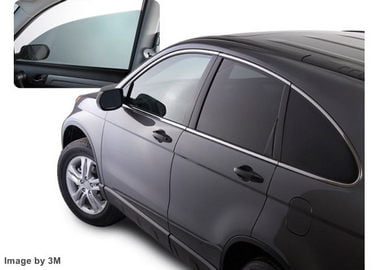At a glance…
The duration a wheel bearing can last after it starts making noise is difficult to specify precisely as it depends on various factors such as the severity of the damage, driving conditions, the load the car is carrying, and how often the vehicle is being driven. However, generally speaking, a noisy wheel bearing can potentially last between a few weeks to a few months, but it’s not recommended to ignore the problem. The noise is a sign that the bearing is failing, and continued use can lead to more serious problems, including the wheel completely seizing or even coming off while driving, which could lead to a dangerous situation. For safety, it is always best to have a noisy wheel bearing checked and replaced as soon as possible.

As car owners, we know that strange noises coming from our vehicles can be a cause for concern. One of the most common sounds that drivers encounter is a strange noise coming from the wheels.
This noise can be a sign of a worn or damaged wheel bearing, a crucial component of the wheel assembly that allows the wheel to rotate smoothly and safely. But how long can a wheel bearing last after it starts making noise?
The answer isn’t straightforward, as there are several factors to consider. In this article, we’ll delve into the function of wheel bearings, the signs of a worn or damaged bearing, and the factors that can affect the lifespan of this essential car part.
We’ll also provide tips for replacing a faulty wheel bearing and maintaining your car’s wheel bearings to ensure they last as long as possible.
Understanding Wheel Bearings and Their Function
We can understand the role of wheel bearings and how they work to keep your car moving smoothly.
Wheel bearings are the small metal balls that are encased in a circular ring, which is usually made of metal or ceramic. The purpose of these bearings is to help your wheels rotate smoothly and to reduce friction between the wheel and the axle.
There are two types of wheel bearings: ball bearings and roller bearings. Ball bearings are the most common type of wheel bearings and are often used in vehicles that require a lot of speed and agility. Roller bearings, on the other hand, are typically used in vehicles that require more durability and strength.
Despite their differences, both types of bearings are designed to perform the same function: keep your wheels spinning smoothly.
Unfortunately, wheel bearings do not last forever. Common causes of wheel bearing failure include lack of lubrication, contamination, and wear and tear over time. If your wheel bearings are causing noise, it’s a sign that they may need to be replaced.
It’s difficult to predict how long a wheel bearing will last after it starts making noise, as it depends on several factors including the severity of the damage and how quickly the issue is addressed.
Signs of a Worn or Damaged Wheel Bearing
If your car sounds like a crying baby or a helicopter taking off, it might be time to get your bearings checked. A worn or damaged wheel bearing can cause a variety of noises, from a humming or grinding sound to a clicking or popping noise. These sounds are often an indication that the bearing is failing and needs to be replaced.
There are several causes of wheel bearing damage, including improper installation, lack of lubrication, and exposure to extreme temperatures. It’s important to note that not all wheel bearing noise is a sign of damage. Common misconceptions about wheel bearing noise include the belief that it only occurs when turning or that it is always accompanied by vibration.
In reality, wheel bearing noise can occur at any speed and may not be accompanied by any other symptoms. If left unchecked, a damaged wheel bearing can lead to more serious problems, including uneven tire wear, decreased fuel efficiency, and even a loss of control while driving.
It’s important to have your bearings checked as soon as you notice any unusual noises or symptoms. Don’t wait until it’s too late to prevent further damage and ensure your safety on the road.
Factors That Affect the Lifespan of a Wheel Bearing
Want to ensure your car’s wheel bearings stay in top condition? Here are some factors that can impact their lifespan.
One of the major causes of premature wheel bearing failure is lack of proper lubrication. Without enough grease, the wheel bearing will start to wear down quickly, leading to increased friction and heat buildup. This can ultimately cause the bearing to seize up and fail completely.
Another factor that can impact the lifespan of your wheel bearings is the driving conditions you encounter. If you frequently drive on rough or unpaved roads, your wheel bearings will be exposed to more dirt, dust, and debris, which can cause additional wear and tear. Additionally, if you frequently tow heavy loads, this can put extra strain on your wheel bearings, causing them to wear down more quickly than they would under normal driving conditions.
To extend the lifespan of your wheel bearings, it’s important to perform regular maintenance on your vehicle. This includes checking your wheel bearings for signs of wear and tear, as well as ensuring they are properly lubricated.
Additionally, you should avoid driving on rough or unpaved roads whenever possible, and be sure to reduce your speed when driving over bumps or potholes. By taking these steps, you can help ensure that your wheel bearings last as long as possible, allowing you to enjoy a smooth, safe ride for years to come.
How to Replace a Faulty Wheel Bearing
Replacing a faulty wheel bearing can be a challenging task, but with the right tools and knowledge, you can save money and ensure your safety on the road. Before you start, make sure you have the necessary tools required for the job. These include a jack, jack stands, a socket wrench set, a hammer, and a bearing press tool. These tools will help you remove the wheel, brake caliper, and hub assembly to access the faulty bearing.
If you don’t have experience working with cars, it may be best to leave this task to a professional. The cost of professional replacement can vary depending on the make and model of your vehicle, but it typically ranges from $200 to $500 per wheel. If you decide to tackle the job yourself, make sure to follow the manufacturer’s instructions and take your time. Rushing the job can result in mistakes that can lead to safety issues down the road.
Once you have removed the old bearing, it’s important to clean and inspect the hub assembly before installing the new bearing. This will ensure a proper fit and prevent premature wear. Use a bearing press tool to install the new bearing, and reassemble the hub assembly, brake caliper, and wheel. Finally, take your car for a test drive to make sure everything is working properly. With the right tools and a little patience, replacing a faulty wheel bearing can be a successful DIY project.
| Tools Required | Cost of Professional Replacement |
|---|---|
| Jack | $200-$500 per wheel |
| Jack Stands | |
| Socket Wrench | |
| Hammer | |
| Bearing Press |
Tips for Maintaining Your Car’s Wheel Bearings
Maintaining your car’s wheel bearings is essential to keep your vehicle running smoothly and prevent potential breakdowns on the road. One of the most important things you can do is to ensure that your wheel bearings are properly lubricated. This will reduce friction and heat, which are two common causes of wheel bearing failure.
You should check your owner’s manual to see how often your car’s wheel bearings need to be lubricated. Typically, this should be done every 30,000 to 50,000 miles.
Another tip for maintaining your car’s wheel bearings is to keep them clean. Dirt and debris can cause damage to the bearings, which can eventually lead to failure. You can clean your wheel bearings with a soft cloth and some mild soap and water. Be sure to dry them thoroughly before reassembling everything.
Finally, it’s important to have your wheel bearings inspected regularly by a professional mechanic. They can check for any signs of wear and tear, such as looseness or noise. Catching any potential problems early can help you avoid costly repairs down the road.
By following these tips, you can help extend the life of your car’s wheel bearings and keep your vehicle running smoothly for years to come.
Conclusion
Overall, it’s important to pay attention to any unusual noises or vibrations coming from your car’s wheels, as they could be a sign of a worn or damaged wheel bearing.
While the lifespan of a wheel bearing can vary depending on various factors, it’s generally recommended to replace them every 100,000 miles or so. However, if you notice any signs of wear or damage, it’s best to have them replaced as soon as possible to avoid further damage to your car’s suspension system.
By understanding the function of wheel bearings, recognizing the signs of wear or damage, and taking steps to maintain them, you can help ensure that your car’s wheels are functioning properly and safely.
So, if you hear any strange noises or feel any unusual vibrations while driving, don’t hesitate to have your car inspected by a professional mechanic to determine if your wheel bearings need to be replaced.





